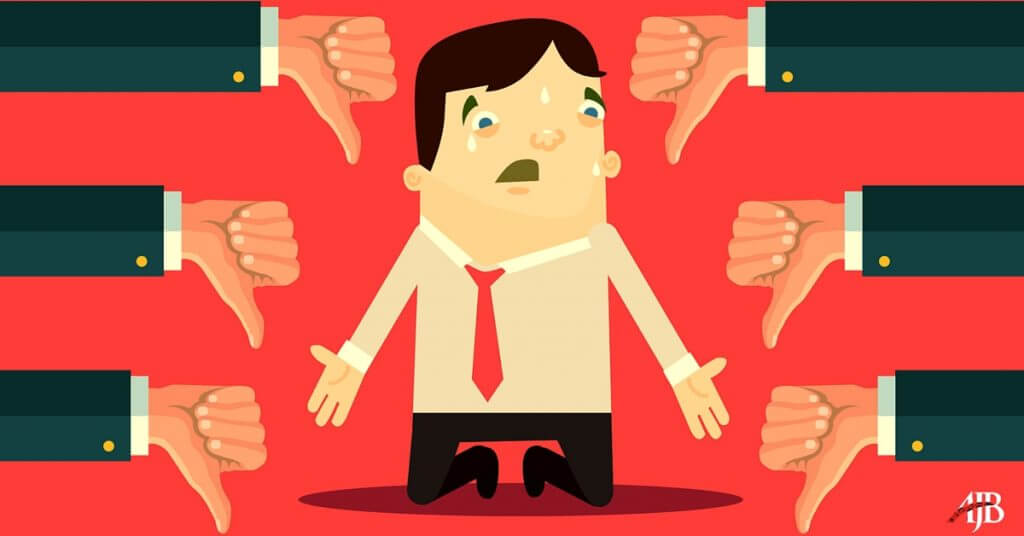
What May Be The Possible Reasons For Your Rejection?
Rejection irrespective of where you stand at in life as a performer, either at the peak of one’s career or at low ebb professionally, learning how to manage rejection after an audition is crucial. As individuals who remain true facing others and take risks creatively, we’re susceptible to being moved by rejection.
Rejection is part of being a performer. Period. It is a reality. It is time that you have a wholesome relationship with rejection starting now.
The truth is, a lot of times the rejection you are experiencing as a performer is not personal. You do not understand what rules or parameters the directors or judging panel have to meet that they are projecting onto you when you walk into an audition room.
There are many reasons that you may not get a part that you check out for – and none of these have to do with your acting ability. Take heart and take a peek at some of the following:
1. The Wrong Look
Roles often call for a general type of look and if that you do not fit you’re out—just like that. Sometimes you may know this information ahead of time, but sometimes you might not. There are also situations where a director may have certain ideas about a character but doesn’t verbalize them to anyone else. The type they are looking for is in their head, and you may or may not fit that idea.
2. Surprises
Did you realize that you had been going to have to sing for that part? Ever been asked to complete an unplanned waltz? Does your character have to yodel? Sometimes you can be caught off-guard by an audition, ensure that you’ve to draw from several skills. Most times they’re spelled out in advance, but not always. You can only prepare for an audition with the information that you’ve been given–the rest is improv.
3. Bad Timing
Even the best of directors can have an off day—or a negative phone call. Sometimes you might wind up being the one to suffer. After all, they are only human, right? On the flip side, the same could happen to you before an audition—either way, it’s no reflection on your acting talent. Real-life sometimes gets in the way.
4. The Experience Factor
Nobody likes to consider this, but it will happen. You are clearly the best option for the role, however; it goes to the person with more experience than you—the girl that starred in the director’s last film. Or the guy that knows the casting director’s mother. In most cases, professionals in the field will choose the best people for the project, but occasionally someone slips by on things other than acting merit alone. Sometimes a manager may feel more comfortable working together with someone that they have worked with before, or perhaps a casting director just doesn’t desire to take a chance on an unknown.
The very next time you’re tempted to stop and throw in the towel after having a frustrating audition, understand that some things are not in your control. Sometimes you just can’t land the role—no matter how you read for it. Don’t take every rejection as a reflection on your own ability, because sometimes skill just has nothing to do with it!
How To Deal With The Rejection, Or What Is The Next Road?
The one thing? Do a killer audition.
If you walk out of an audition and can say truthfully, “That’s the best I can do,” then leave it in the lap of Zeus and announce NEXT. Just be sure that “the best I can do” is not self-delusion. To say it’s the best you can do, you must be PREPARED. To say it’s your best, you must be in the top PRESENTATION form.
And then you go into the audition room to take over, to knock ’em dead, to walk out with pride, and on to NEXT. And never wonder for whom the call-back telephone bell will ring.
Forget the audition.
- So when you burst into inconsolable sobs, look in the mirror. Preparation? Yes? Presentation? Yes? Audition savvy? Yes? Then you definitely have earned the right to proclaim NEXT. If one, two or all three are “No,” then back again to the drawing board. It’s a great deal more comforting to learn that you yourself have blown the audition than to be told you’re spectacular and never hear from their website again. If you yourself created the rejection, then you can correct it.
What precisely is NEXT? What exactly are the steps to NEXT?
- NEXT is forgetting about the audition. Do not find innuendoes from the audition committee. Only “Thanks”, as well as silence, is as reliable as “You’re great, superb, exactly what we want.” Do not search for hidden indications of how they liked you or your work. Do not assume you have the role when they laugh in the right places or gasp when you’re finished. Do not glow inside their praise (that gives them a lot of power). Glow in pride at your own personal job well done—more than well done—your own job done the most effective you can do.
- Review, repair, then start the three P’s all over again (preparation, presentation, pride). Work, grow, learn, watch, listen, experiment—maybe even do something as basic as picking a more interesting monologue. Be too busy growing to give rejection room to grow into bitterness. Then in you go and on to NEXT.
- There are ways of handling rejection, which I strongly do not suggest. You understand them all. But you can find healthy approaches to cope with the hurt inherent in this profession: workout your feelings in the gym, jog, clean your apartment, visit a movie, take an extra dance class or singing lesson or coaching session. One famous film star fired her manager because she felt she was being rejected in favor of another superstar. When you reach that level, you won’t need NEXT. Money buys lots of alligator hide.
- For the time being, the most effective net underneath the high wire we constantly walk is preparation, presentation, pride, and NEXT. And then another NEXT. Until preparation, presentation, and pride lead to CAST!
- Foremost, being pragmatic should force one to identify a Plan B—an even more reliable and equally fulfilling life pursuit that you keep in the trunk of one’s mind. Besides this being prudent, understanding that you’ll be fine even though you aren’t an actor means you’re not desperate about each audition, each meeting. Since nothing is less attractive than desperation, that could make you a much more appealing person to hire.
- Understanding the arbitrary nature of casting also helps with constant rejection. You will see times you just know you nailed the audition, but that you do not even get called back. Were you fooling yourself? Maybe. Or even you just sound just like the director’s nasty ex-wife. Or maybe even you’re too attractive to play the insecure lead role. Or one of a thousand other factors having nothing to do with your talent. You can brush it off and move on, remembering that the only person you know you can please is yourself.
- The fact that life as an actor is largely a Crapshoot shouldn’t imply, so it doesn’t matter how hard you work on it. On the contrary, it needs that you maximize your odds. A thorough, honest self-assessment is important, so you can capitalize on strengths and work with weaknesses. And that can’t happen without input from objective professionals. Find out where your chosen actors have trained and get that training. Insist on feedback from every audition—and pay attention to it! See the reviews and see if there’s anything you can glean, positive or negative. Don’t take it personally, take it professionally. Use it to help you grow.
- If you want to act, then go for it. They always need new talent. But as you do, you ought to never forget its fickle nature. Treat acting just like the grand experiment that it really is. With luck—and I mean luck—acting will provide you what you want with this life. But when and if in the pursuit of this bizarre career, you lose a sense of your value as a person, it’s time to find a life pursuit that brings you the rewards you deserve.
- Rejection feels deeply personal, especially as you begin auditioning for companies. But don’t let disappointments take the wind out of your sails. The audition process is the very first of many challenges, such as casting and contract renewals you will face as a professional dancer. But by looking at the big picture, making an ideal plan and trusting the system, you can learn to take rejections less personally and keep moving forward.







